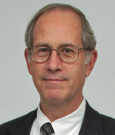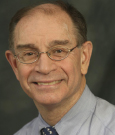Finishing up a 2-year term as President of the American Society of Pediatric Hematology/Oncology (ASPHO), A. Kim Ritchey, MD, summarized ASPHO’s achievements in advocacy, education, and professional development in his State of the Society address at the ASPHO 27th Annual Meeting in Chicago. He also challenged members to “take it to the next level,” by supporting the goals of ASPHO’s new “Enriching the Future” campaign.
Following the Presidential Symposium, Dr. Ritchey, Vice Chair of Clinical Affairs, Department of Pediatrics, Children’s Hospital of Pittsburgh, University of Pittsburgh Medical Center, expanded on these themes during an interview with The ASCO Post.
‘Most Important Collaboration’
“Two years ago, we launched our most important collaboration, with the American Academy of Pediatrics [AAP],” Dr. Ritchey stated at the ASPHO Presidential Symposium. “The goal of this collaboration was to ensure that one voice represented pediatric hematology/oncology and also to join forces with the Academy in advocating for our patients and their families. The collaboration has been very fruitful.”
That collaboration resulted in a united and “more powerful voice in advocating for our patients,” Dr. Ritchey explained in the interview. ASPHO and AAP have led advocacy efforts to resolve the shortage of chemotherapy drugs and to consider the needs of pediatric patients in drug development. “Frequently an agent goes through drug development and it is only approved for adults, without an indication for children.” Dr. Ritchey said that those developing and approving drugs need to be reminded that children might benefit, too.
Working together, ASPHO and the AAP had a strong presence in Washington during hearings about the sequestration of funds and how it impacted pediatric oncology research, Dr. Ritchey said. “Pediatric oncology research is funded almost exclusively by the National Cancer Institute [NCI], whereas adult oncology research is funded predominantly by pharmaceutical companies and non-NCI sources,” he explained, so the sequestration “preferentially hit pediatric oncology research more than adult oncology research.”
He expects the collaboration to continue to be fruitful. Small groups of members from both ASHPO and AAP have been created to serve as “subject matter experts for policy review,” he said. “With ideas solicited from the membership, new policies to enhance patient care in pediatric hematology/oncology practice will be adopted.”
ASPHO has also joined together with ASCO and other professional societies, as well as parent-led organizations such as the Alliance for Childhood Cancer. “We work closely with the Children’s Oncology Group [COG],” he said, to advance pediatric clinical trials and other research. Dr. Ritchey previously served as principal investigator for the COG at the University of Pittsburgh and continues to participate in enrolling patients in COG clinical trials.
Encouraging Early Career Members
“One of my goals as ASPHO President was to encourage early career members—with early career defined as during fellowship or 5 years afterward—to become active within ASPHO,” Dr. Ritchey noted at the Presidential Symposium. “I asked that there be at least two early career members on each committee, and we’ve now formed an early career council composed of two early career members from each committee. The purpose of this council is to reflect on the issues that confront ASPHO and our specialty from the early career perspective, and to advise the board, who are fairly far from their early career, regarding their perceptions and reflections of their group.”
Younger physicians starting out in their careers are well represented within ASPHO. “We give free membership to all fellows, and we have reduced the membership fee for the first year after they graduate from their fellowship program to encourage continued membership,” Dr. Ritchey explained.
Mentorship and Fellowship Training
“Regarding career development support, there have been three major initiatives. The first is a mentorship program that has had a great start,” Dr. Ritchey said. The second issue concerns fellowship training. “The American Board of Pediatrics has indicated that it is now the responsibility of the subspecialty societies like ours to evaluate ‘entrustable professional activities’ that will be used to assess the readiness of trainees for practice.”
Examples of these entrustable professional activities would be that “every pediatric hematologist/oncologist has to know how to perform a bone marrow aspiration” or “every pediatric fellow has to know how to give bad news,” Dr. Ritchey said. “We have developed a set of these activities and are well ahead of other specialty societies in this regard,” Dr. Ritchey noted. “It will require considerable ongoing effort,” he added, “to determine if these evaluations are adequately assessing the readiness of fellows to graduate.”
The third initiative concerns the pediatric workforce. Dr. Ritchey said. “Are we training too many fellows or not enough?” To get the answers, ASPHO conducted a nationwide survey. The results are now being analyzed and are expected to be published soon.
“We want to make sure that our fellows have jobs, but the workforce is changing in pediatric hematology/oncology. There are more midlevel providers—nurse practitioners and physician assistants. There is an increased number of hospitalists throughout medicine, and that is affecting us as well. So we want to make sure that we are in touch with the facts about the workforce in pediatric oncology.”
‘Enriching the Future’
Membership in ASPHO continues to grow, as does attendance at the ASPHO Annual Meeting. The recent meeting had more than 1,000 registrants representing 36 counties and 48 of the 50 United States.
“We are now on much firmer financial ground,” Dr. Ritchey said. “We are not rich by any means, but at least we are solvent.” More funds are needed, however, “to develop new programs designed to enhance our members’ careers and move our Society to the next level,” Dr. Ritchey stated.
To raise that money, ASPHO has launched its “Enriching the Future” campaign. “Our goal is to raise $150,000 by the end of 2015, and I am pleased to say that all of the past presidents and board members are 100% behind this campaign.”
The campaign committee, led by former ASPHO President William G. Woods, MD, Professor of Pediatrics at Emory University School of Medicine, Atlanta, “has selected three areas for support by the campaign funds: clinician educator awards, visiting professorships, and travel awards,” Dr. Ritchey reported.
“Clinician educator awards are designed to support scholarship in medical education, including research, advanced training, and development of new educational resources. The goal of this award is to strengthen medical scholarship in pediatric oncology/hematology, providing needed support for this emerging career pathway,”
he said.
“ASPHO Visiting Professorships are designed to allow leaders in our field to share their experience and wisdom with other ASPHO members who might not get a chance to have such interaction, especially at smaller institutions,” he continued. “ASPHO travel awards will expand our current travel award program, and we hope that early career members and international members who currently are unable to participate in ASPHO educational activities will benefit. Our goal is to expand essential learning opportunities provided by attendance at the Annual Meeting and to provide an opportunity for those unable to participate because of financial constraints.”
These three initiatives could be complemented by others in the future. In encouraging ASPHO members to contribute to the campaign, Dr. Ritchey said, “Your participation reflects your confidence in the future of ASPHO, and I think we have an optimistic future.” ■
Disclosure: Dr. Ritchey reported no potential conflicts of interest.



